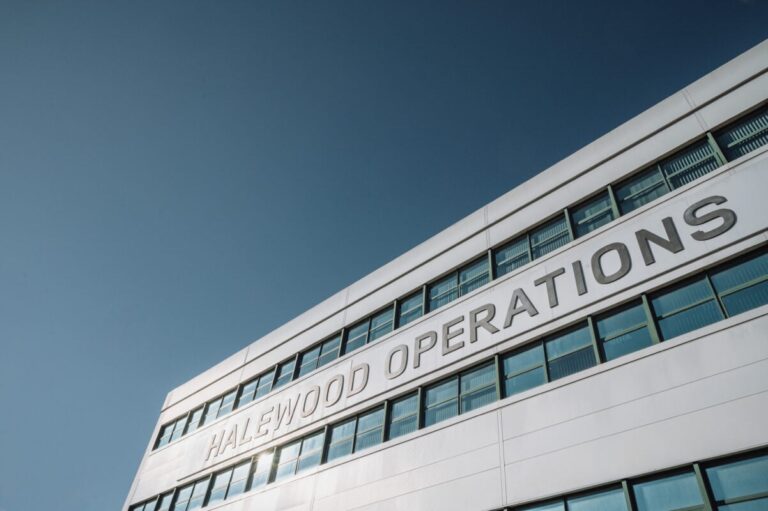Luxury car maker Jaguar Land Rover (JLR) has announced it will install a mass solar PV system at its Halewood factory as part of a £500 million investment to decarbonise the historic factory.
The company will install 18,000 solar panels at Halewood, with a total generation capacity of 8,600 GWh, enough to cover 10% of the site’s energy consumption. JLR also recently installed solar-powered car parks at the facility, allowing employees to charge low-carbon electric vehicles (EV).
The company has set a target to reduce total CO2 emissions by 46% by 2030 and has reduced operational emissions by 24.1% over the past four years.
One of the most impactful steps in Halewood’s decarbonization journey was upgrading the factory’s paint shop. Thanks to a hydrogen boiler, the location was able to save 2.4 tons of CO2per day, which amounts to a huge 565 tons per year.
JLR is also working to upskill its employees for the company’s green future. The company hopes to electrify all its car brands by 2030. The company will invest £20 million each year in its Future Skills Program to upskill employees in green technology, which has seen almost 25,000 people participate so far.
Reuben Chorley, JLR sustainable industrial operations director, said: “At JLR Halewood we drive transformation through circular principles: use less, extend the life of what we have and reuse where possible. We are also increasing energy efficiency and embracing renewables, with exciting plans to integrate hydrogen into our operations.”
Major industry is looking at solar energy
JLR is far from the only industrial or technology company using solar energy to decarbonize its operations. Last week, biotech company Fera Science announced that it had appointed electrical specialist Meson Electrical to install a 150 kWp solar power plant on the roof of its York campus.
In August, GB NRG announced it had successfully completed 2MW of solar PV installations across all Crendon Timber Engineering sites in the UK, while Bristan Group successfully installed 1,666 solar panels at its headquarters in Tamworth, Staffordshire. The Bristan Group installation will provide approximately 600 kWh of electricity, enough to cover approximately 56% of the site’s power needs.


